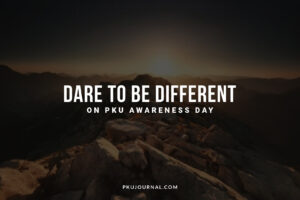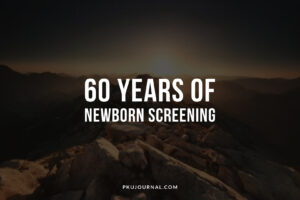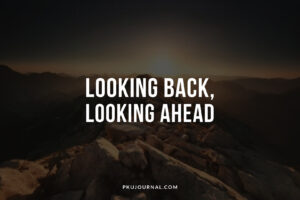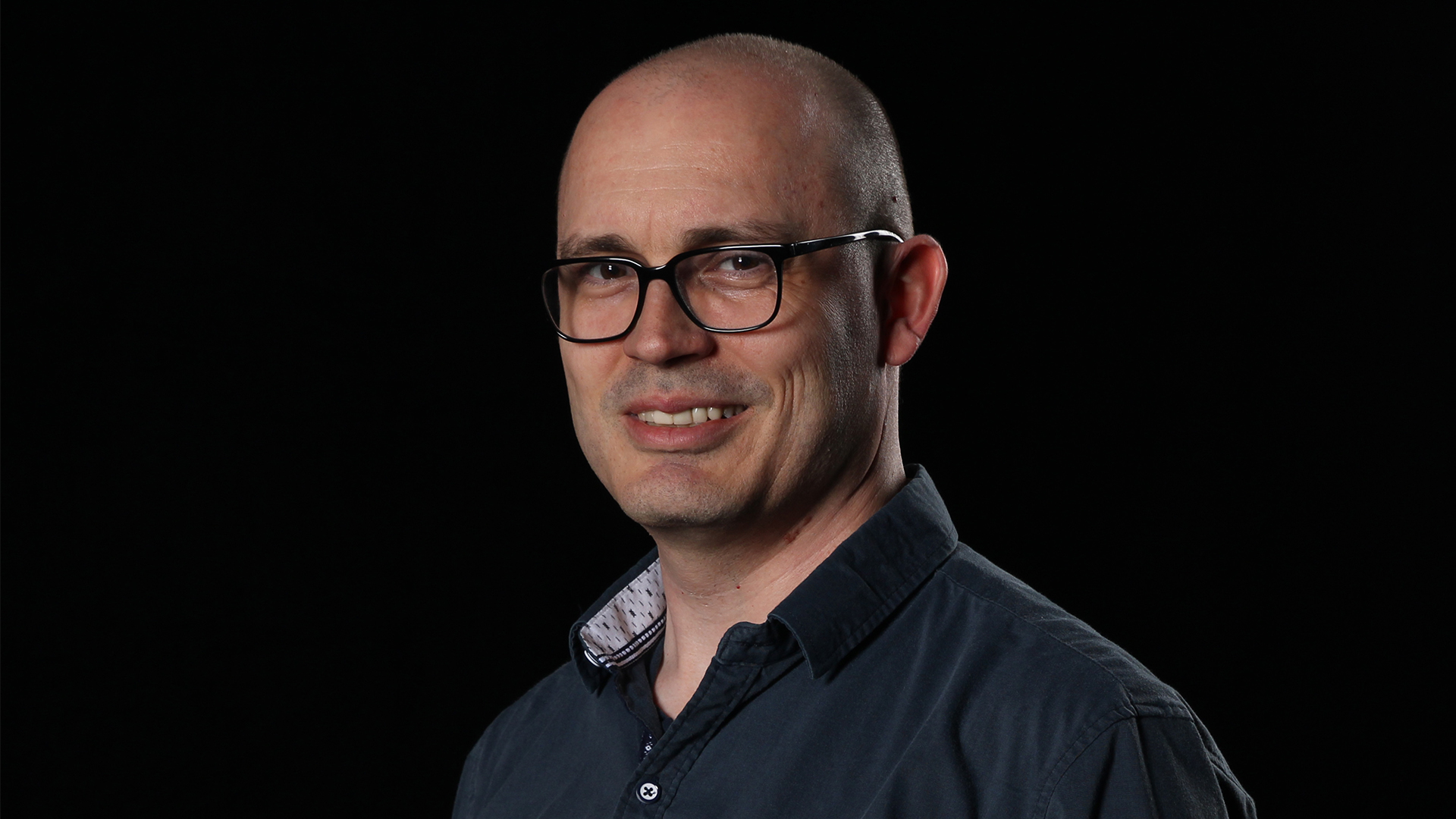A fallen officer. A survivor. A mother and child saved. Discover how one person’s sacrifice set off a chain reaction, making an impact across lives and time. This is story is from Never Give Up: A Rare Disease Podcast, available on Apple Podcasts, Spotify, or wherever you get your podcasts.
The Power of Choices: Making an Impact on the World
I love traveling and meeting others in the rare disease community. Even though our circumstances are different and we don’t share the same rare disease, there is a shared bond. It’s one of those experiences when you think, “Yes! These are my people!”
After taking a break from advocacy and social media for a few years, it’s been nice to reengage with the community. I love producing videos and I enjoy public speaking, but nothing quite replaces hanging out with friends in the rare disease community… just enjoying life together. To be back on the road, working on advocacy projects, and spending time with friends… it’s filling me with indescribable joy.
One of those trips took place last fall. I spent the weekend in Westford, Massachusetts at the New England Connection for PKU and Allied Disorders annual event. On Saturday they held a conference, and Sunday we went to a farm and picked apples. It was so much fun.
But that Saturday night, after a long day at the conference, a group of us were sitting around a table having a conversation. In-person conversations are my favorite part of conferences like this. Social media is amazing for the rare disease community, and is a huge part of our daily lives. It’s how we stay connected. But nothing replaces in-person, face-to-face conversations.
At some point, our conversation shifted from just catching up with each other to a deeper conversation about life. My favorite conversations.
We talked about the power of choice, how one decision at one moment influences the next in a way you never see coming. And how normal people like you and me can have a profound impact on the world if we understand the power of our choices.
At the time, I was in post-production on a short documentary about a woman who almost died from COVID. The story I was telling was narrow in focus. But there was more to it, and I knew it related to our conversation.
So I told them a story about three people I knew… Thomas LaValley, Juan Zuniga, and Jamie Martin.
Your Choices Matter
I hadn’t seen him in seven years. But there we were, two former TV photojournalists standing in a video game store, catching up and talking about the past.
In my last year at the TV station, Thomas LaValley came to us straight out of college. I didn’t get to know him very well before I left, but I liked him immediately. He was a good guy with a good heart.
He spent a few years working the crime beat. From what I learned from those who knew him best, he was a protective guy. The kind of person who would put himself into harm’s way to protect others, because it was the right thing to do. So he left television and became a police officer. By this point, he had been on the job for a few years. He was no longer that young man straight out of college. He carried himself differently.
We chatted for a few minutes and then went our separate ways.
A few months later… I woke up one morning and my wife said, “A police officer was killed last night.”
My first thought was, “I hope it wasn’t Thomas.”
I asked her, “Did they release the name yet?”
“Yes,” she said. “His name was Thomas LaValley. Did you know him?”
Yes. I knew him.
He had responded to a domestic disturbance call. He walked in the door, there was a struggle, and he was shot and killed.
Thomas LaValley died on August 5, 2015. He was 29 years old.
Shreveport Police Officer Thomas LaValley, Badge Number 1284.
End of Watch: 8-5-15.
I covered a lot of tragedies while working in TV news. I had seen a lot of pain. I had watched people die. And I had grown numb to it.
But when it happens to someone you know, it wakes you up. And when it happens to someone young, in the prime of their life, it rips your heart out.
I had already lost my step-sister, Mary Dee. She was murdered when we were 18.
And Jordan… Jordan was an intern at the TV station. He died in a car wreck one night. He was still in college, and had just finished his internship a few months earlier.
And now… Thomas. Another person, one of those bright souls beloved by everyone, just like Mary Dee and Jordan… now taken from us at a young age.
I went to his memorial service, paid my respects, met his mother, and comforted my friends and former colleagues who knew him best.
But Thomas’s story doesn’t end there.
The Power of Immediate Action
July 29, 2017. It was a Saturday night, and Juan Zuniga was leaving work. His family owned El Compadre Mexican Restaurant. Juan and his mother closed up for the night, and as he got into his truck he heard his mother cry for help. She was being robbed. Juan ran over and tried to protect his mother. He was shot twice in the chest.
As he lay in his mother’s arms, bleeding out, one of the police officers who responded came to their aid. He had a combat trauma kit on his belt, and immediately pulled out the gauze and began packing the wounds. Without that immediate intervention, Juan could have died within minutes.
But first responders were able to get him to a Level One trauma center… the ideal place for someone with a serious trauma to receive treatment.
One of those treatments… he was placed on an ECMO machine. ECMO stands for extracorporeal membrane oxygenation. It’s frequently used in cases like this. It removed Juan’s blood from his body and allowed it to reoxygenate. It also bypassed his heart and lungs, allowing his body to recover.
Juan spent over a month in the hospital, months in rehab, but was finally able to recover.
Our community held a fundraiser for Juan to help him and his family recover from the financial hardship of going through something like that. What did Juan do? He gave that money back to the medical school, to the people at the Level-One trauma center who saved his life.
Juan’s story, produced by our team at CRM Studios Shreveport for LSU Health Shreveport.
A Chain of Life-Saving Choices
July 2021. Jamie Martin was 7 months pregnant. And she had COVID. She was in a hospital in South Louisiana, she was intubated, and the doctors didn’t expect her to make it through the night.
So, they called a doctor at our medical school up here in North Louisiana. In the early days of COVID they had tried everything to stabilize patients. One of the treatments that worked was to put the patient on ECMO. It helped get their oxygen levels up, and gave their bodies time to recover.
Now this team had a mobile ECMO machine. So, the doctor got on a helicopter, the crew flew down and picked up Jamie, put her on ECMO, and brought her back to North Louisiana.
They saved Jamie’s life and later performed a C-section to deliver her son.
They were both OK. Thanks to the team and their mobile ECMO machine.
I edited Jamie’s story, and it’s one that stays with me. Not just her amazing story of survival. But working on this was when I realized how Thomas saved both lives.
The Interconnected Web of Impact
Three lives. Three traumatic injuries. Separated by six years.
Three lives… forever linked.
After Thomas LaValley was shot and killed, someone donated money to the police department, and they bought combat trauma kits for officers to wear on their belts.
The night that Juan Zuniga was shot, the officer who helped stop the bleeding had one of those trauma kits.
And Juan… the money that he gave to the medical school was used… to purchase a mobile ECMO machine.
That mobile ECMO machine saved Jamie Martin… and saved her son.
And Thomas… he gave his life. But years later, Juan, Jamie and her son are alive. Because of his choice to leave television news to protect others. Even in his death, Thomas is still saving lives.
With Juan Zuniga at the 2022 Evening for Healers honoring those who saved Jamie Martin’s life. Juan’s decision to give to the medical school saved Jamie’s life. He is my hero.
The Legacy of a Single Decision
I met Juan in 2018 when the team that I work with produced a short documentary about his story. It was part of a project that we work on every year for the medical school… a fundraiser that honors the medical professionals and first responders who save lives in our community.
His action… giving the money that was raised for him back to the medical school… that saved Jamie’s life.
Juan is one of my heroes.
And Jamie… we met last year when I told her story in one of those short documentaries.
I spend about three months working on a documentary like that. I think about it a lot, listening to the soundbites over and over again until the story gets deep inside.
And the more I thought about it, the more I realized how Juan and Jamie’s stories link back to Thomas.
Thomas’s decision to leave photojournalism cost him his life. But if he had not left, that police officer years later wouldn’t have had the combat trauma kit. And Juan wouldn’t have survived. He wouldn’t have given the money that bought the mobile ECMO machine that saved Jamie and her son.
Their lives are interconnected, because of one young man’s choice.
As someone who grew up with a rare disease, I’ve always been aware that there are forces outside of my control. I was born with something that has a profound impact on my daily life… my routine, my diet, every social interaction.
It’s tempting to feel like your life is out of control. To adopt a fatalistic attitude and think, “What’s the point?” At least, that’s been part of my story.
But we can’t see the impact our choices will have years down the road. I’ve seen this to be true in my own life. I produced my first film about PKU in 2011, and I still get messages from people who say they found it shortly after their child was diagnosed with PKU, and that it gave them hope.
If I had listened to the voices in my head, and not told that story, who knows if I ever would have connected with the rare disease community.
I’m grateful to have met Jamie. To have had the opportunity to get to know Juan, and to call him my hero. To have known Thomas, even if it was only for a short time.
Knowing them, and seeing how their lives are forever connected, inspires me. It inspires me to be grateful for every moment that I’m alive. It could all be over in the blink of an eye. It inspires me to consider the impact of all of my choices and do the right thing, even when I can’t see what that impact might be.
And it inspires me… to never, never, never give up.











Leave a Reply